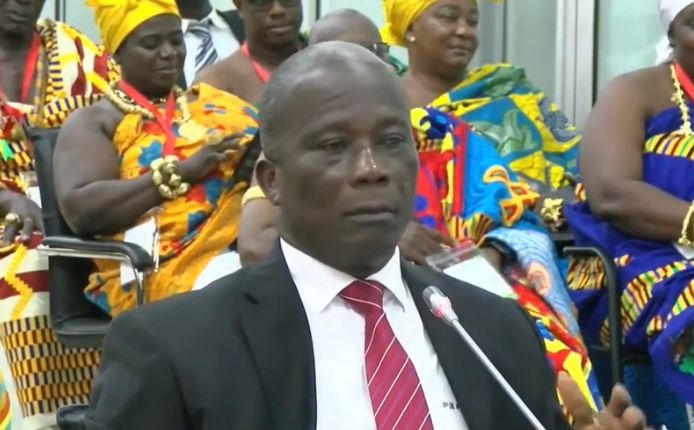The nomination of Justice Philip Bright Mensah to the Supreme Court of Ghana has ignited a crucial debate concerning the optimal size of the nation’s highest court. The 1992 Constitution establishes a minimum of ten justices, including the Chief Justice, but remains silent on a maximum number, leaving the potential for expansion or limitation open to interpretation and raising concerns about the possibility of “court-packing,” a practice where appointments are made to influence the court’s ideological balance. Justice Mensah’s appearance before Parliament’s Appointments Committee brought this issue to the forefront, with his position advocating for a comprehensive, stakeholder-driven approach to determining the appropriate number of justices, based primarily on the court’s jurisdiction and burgeoning caseload. His proposal for a 20-justice Supreme Court underscores the urgency of addressing the current backlog, evidenced by the 595 pending cases as of June 2023.
The core of Justice Mensah’s argument rests on the premise that any decision regarding the size of the Supreme Court must be grounded in a thorough understanding of its workload and the demands placed upon it. He emphasizes the need for broad consultation, engaging not only legal professionals like the Ghana Bar Association, but also constitutional experts, academics, and political parties to ensure a consensus-based approach. This inclusive strategy aims to prevent politically motivated manipulations of the court’s composition and maintain its integrity as an independent judicial body. The sheer volume of pending cases, highlighted by the Judicial Service’s annual report, serves as a compelling justification for his position, demonstrating the strain on the current system and the potential for delays in justice delivery.
Justice Mensah’s proposal for a significant expansion to 20 justices represents a bold departure from the current structure. His rationale centers on the practical realities of managing a rapidly growing caseload. While the Constitution establishes the Supreme Court’s wide-ranging jurisdiction, encompassing constitutional matters, appeals from lower courts, and other specialized cases, the current number of justices may be inadequate to handle this influx efficiently. A larger court, he argues, could potentially expedite the judicial process, reduce the backlog, and ensure timely access to justice for all citizens. This expansion, in his view, is not about manipulating the court’s ideological leanings, but about enhancing its capacity to effectively fulfill its constitutional mandate.
However, the proposal for such a substantial increase in the number of justices inevitably raises concerns about the potential financial implications and logistical challenges. Expanding the court would necessitate increased budgetary allocations for salaries, benefits, support staff, and physical infrastructure. Furthermore, managing a larger court could introduce complexities in terms of coordinating judicial panels, scheduling hearings, and ensuring consistent application of legal principles. These practical considerations require careful evaluation and planning to ensure that the potential benefits of an expanded court outweigh the associated costs and complexities.
The debate around capping or expanding the Supreme Court is intrinsically linked to broader questions about judicial independence and the separation of powers. Concerns about “court-packing” highlight the risk of political interference in the judiciary. If the number of justices can be manipulated for political gain, it could undermine public trust in the court’s impartiality and its ability to function as an independent check on the other branches of government. Therefore, any decision regarding the size of the court must prioritize safeguards against such manipulation and ensure that appointments are based on merit and qualifications, rather than political expediency.
Ultimately, the optimal size of the Supreme Court is a complex issue with no easy answers. Justice Mensah’s call for broad consultation and data-driven decision-making provides a valuable framework for navigating this debate. By engaging all stakeholders and considering the court’s workload, jurisdictional responsibilities, and the need for both efficiency and independence, Ghana can arrive at a solution that strengthens its judicial system and upholds the principles of justice and fairness for all its citizens. The final decision should be grounded in a commitment to strengthening the rule of law and safeguarding the integrity of the Supreme Court as the ultimate guardian of the Constitution.


